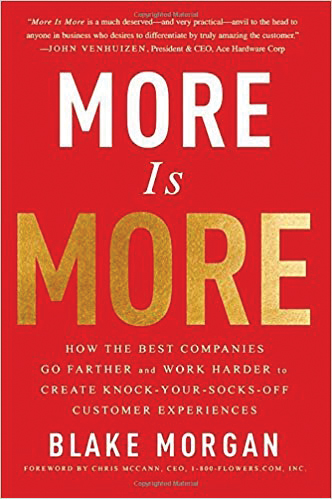Dilemma: We recently had service failures and we need to earn our customers’ trust and loyalty back—and maybe even have a conversation to find out where the disconnect lies. Can problems regarding customer satisfaction be addressed productively? Is there a cookie-cutter approach?
Thoughts of the Day: It’s a home run when you and the customer agree on what’s expected and you’re able to deliver exactly that. Know that customers who take time to explain their concerns are doing you a big favor. Set up a system to learn from service failures and communication breakdowns. Strive to match customer demands for the level of quality, pricing, and accountability they expect.
 In the sales, delivery, and ongoing service phases, instead of telling customers what you can deliver, shift the focus and become more of a listener. Find out what they’re looking to receive. Ask questions about how their needs are—or aren’t—being met. Be sure to revisit those details, as the needs of your customers may change on a regular basis. Use the information you gather to tailor your offers to match their expectations.
In the sales, delivery, and ongoing service phases, instead of telling customers what you can deliver, shift the focus and become more of a listener. Find out what they’re looking to receive. Ask questions about how their needs are—or aren’t—being met. Be sure to revisit those details, as the needs of your customers may change on a regular basis. Use the information you gather to tailor your offers to match their expectations.
Customers can easily go elsewhere without saying a word—and when they do, they often leave your company in the dark as to what went wrong. Teach your employees how to mine feedback for clues and complaints that will direct you to what service elements need some repairs.
It’s important that everyone who comes into contact with customers learns how to act with grace under fire. Identify where the breakdown occurred (dispatch, reservations, chauffeur) and learn from the mistake. A calm demeanor and unwavering patience will go a long way toward successfully resolving an unhappy customer’s situation. Practicing what to say and do when a customer is hot under the collar means that your staff will be better able to maintain control when they work to address clients’ concerns in real time.
While complaints may differ, you can develop a basic, uniform approach to how you handle them. Teach your team to say (and mean) “thank you for the feedback,” and then ask how the customer would like things resolved—without making any promises yet as to what can be done about the issue. Sometimes, just an acknowledgement of the issue is enough to satisfy their frustration. Make sure to get contact information and specify a time frame in which the customer will hear back with a solution.
Make it standard procedure to fill out a customer complaint sheet itemizing every incident. Log who called, who took the call, details about the complaint, to whom the problem was referred, how the issue was addressed, and whether the customer was ultimately satisfied. Use those sheets to track how—and how well—incidents are resolved. Periodically meet as a team to review all complaints and look for trends and opportunities to improve. Make it everyone’s mission to reduce incidents as you learn how to improve every aspect of your operation.
Make operations accountable for delivering a great customer experience. Do periodic check-ins on the quality and accuracy of the services you deliver. Put someone in charge of inspecting and reporting on the work your company performs, with an eye on exceeding standards for quality and satisfaction. If there are gaps, figure out how they happened and what changes are needed.
Give your operations staff the authority to intervene and make changes when customer expectations are not being met. Review performance regularly, share the results, and ask what the department plans to work on next to reduce incidents and improve satisfaction.
 Talk to your people about the importance of earning customer loyalty by delivering above and beyond what’s expected. Circle back to find out how satisfied the customer was a day or a week later.
Talk to your people about the importance of earning customer loyalty by delivering above and beyond what’s expected. Circle back to find out how satisfied the customer was a day or a week later.
Remember, it takes much more effort to sell a new customer versus what it takes to retain an existing customer. Focus on smoothing out the bumps in any issues regarding customer satisfaction to improve profits and reduce stress.
Looking for a good book?
Try “More is More; How the Best Companies Go Farther and Work Harder to Create Knock-Your-Socks-Off Customer Experiences” by Blake Morgan. [CD0319]
Andi Gray is the founder of the Business Consulting Firm Strategy Leaders. She can be reached at andi@strategyleaders.com.

